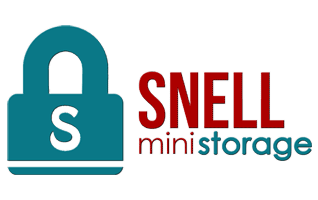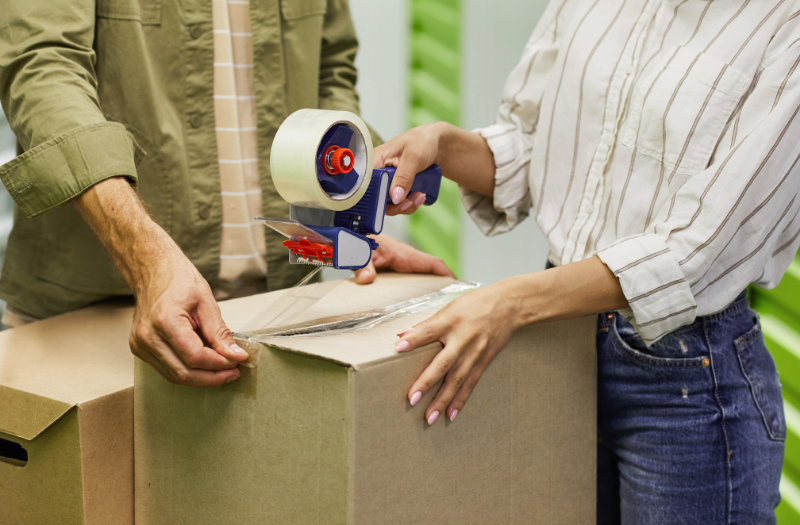A storage unit is a terrific idea for most situations. Modern storage units are clean, safe, well-lit, and you can usually find something climate-controlled if you need to. They are designed to hold almost anything, but there are some things that do better in storage units than others.
For example, if you’re storing things in a unit without heat or air conditioning, moisture can be a concern. Old books or photo albums that you want to keep in mint condition can warp and turn yellow. Antique furniture can rot if it’s left inside uncovered for too long. Depending on where the storage unit is, it can make whatever the weather outside feels like even more extreme indoors. That means hot is hotter and cold can feel extremely cold.
In addition to sensitive items, there are often things that your storage facility owner doesn’t want or strictly prohibits inside of the units. Things like firearms, ammunition, fireworks, or anything combustible are often restricted in leases. Likewise, facility owners or managers often don’t want to assume liability for valuables. In contracts, they’ll spell out that they take no responsibility for jewelry, cash, and other high-ticket items.
If you’re interested in a storage unit to keep some things in, it pays to know what shouldn’t go inside. You’ll save yourself from spending money and time on a lease you otherwise wouldn’t sign. Here are some things you shouldn’t store in a self-storage unit.
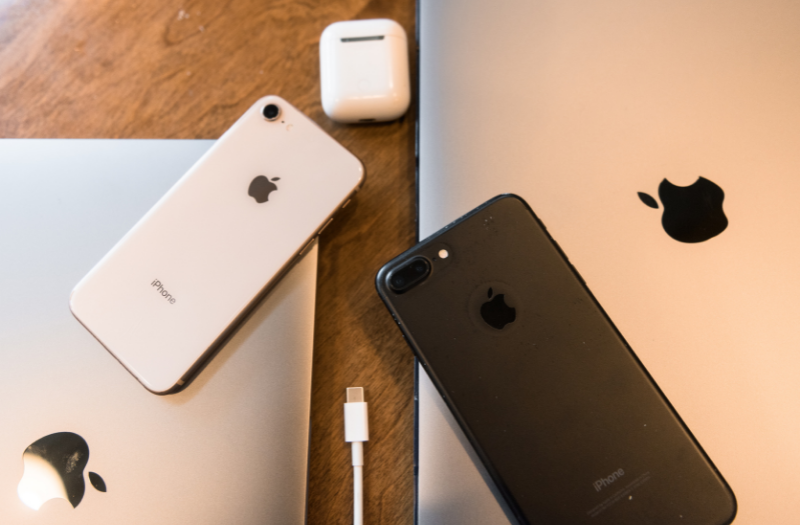
Electronics
No matter where your storage unit is and what you do to it, moisture will always be a concern unless you’re renting a humidity-controlled unit. When temperatures go from hot to cold, condensation could pose a risk to electronics, with more or less severity depending on your geographic location.
Now, there are certainly ways that you can store electronics in a storage unit. They just take extra work. A lot of people keep old electronics because you never know what’s going to become cool or retro down the line. Why just toss them out when you’re done using them?
If you’re going to keep electronics in your unit, put them in sealed bags and make sure they’re on shelves or on boxes on wooden pallets, so they’re not touching the floor. Also, just know that your storage unit likely will take no responsibility if they’re damaged or lost.
Family Treasures
We’re going to say family treasures here, but really you shouldn’t put anything in a storage unit that you absolutely can’t stand to lose. We mean things like keepsakes from older relatives, essential personal documents, and other irreplaceable unique items. You never know what can happen, which applies to your home or your storage unit. These things should be in a safe, a safe deposit box, or somewhere close to you where you can grab them in a hurry if necessary.
Also, we say family treasures here, but this covers anything so precious that you can’t stand the thought of losing something. To some, this will make it sound like a storage unit is less safe than your house, but that’s certainly not the case. Storage facilities typically have 24/7 security and modern access control to keep your property safe. Of course, you also have to consider insurance and whether it will cover your property when it’s stored somewhere else—just something to think about.
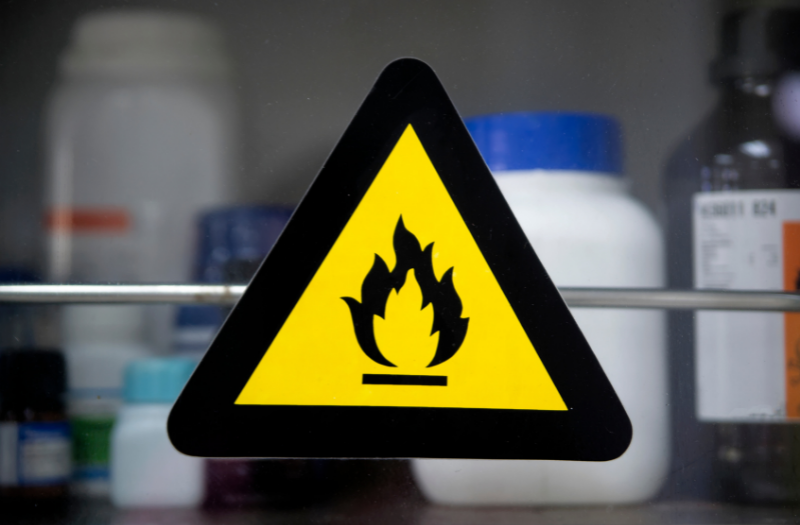
Anything Flammable
OK, so technically, anything is flammable; however, we mean anything that can spontaneously combust or any item that is particularly sensitive to heat and fire. If your storage unit doesn’t have air conditioning, it will probably get quite hot inside during the summer. When temperature rise, eliminate any fire risk by keeping flammable items out.
Living Things!
This is common sense to most people, but it’s happened before, believe it or not. Usually, it’s just some plants, but that’s bad enough. Never leave anything living inside of your storage unit. The heat, lack of oxygen circulation, and lack of sunlight will kill whatever is inside. Like most people, you may have absent-mindedly put some plants in your unit during a move.
It’s OK. Just go get them out if you want to keep them alive. Managers typically spell out this in leases, but they aren’t watching your every move when you’re coming and going.
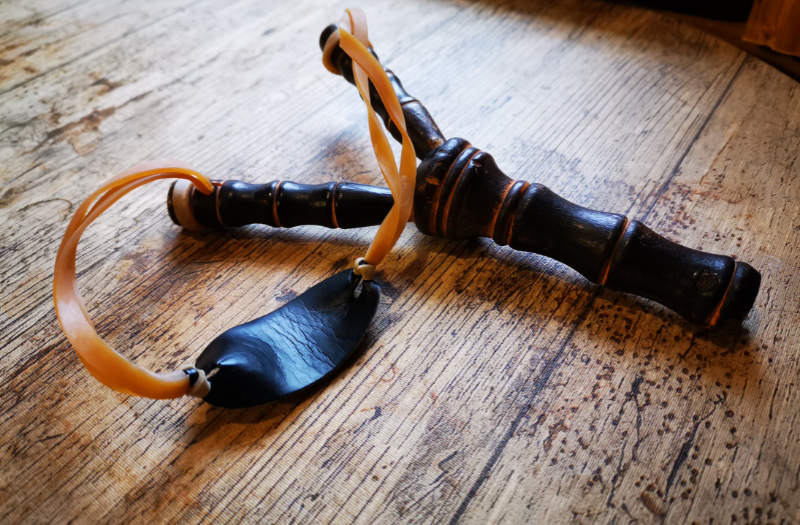
Weapons
We’ve already touched on the fact that many storage unit facilities prohibit the storage of firearms and ammunition. This also applies more broadly to restrict weapons on their property. There are a lot of legal reasons why an owner or manager doesn’t want weapons on-site. They likely don’t want to be tied up in anything criminal-related or have the police come knocking. Saying no guns are allowed gives them blanket protection from liability.
Suppose you’re wondering whether your old samurai sword or a slingshot from when you were a kid count; just ask before you keep it inside. The last thing you want is to violate your lease and have to move somewhere else over an honest mistake.
Hazardous Items
A self-storage unit may seem like an ideal place to keep hazardous chemicals or something like a corrosive waste. After all, it’s better than your garage or backyard, right? Wrong! These items are all against the rules at practically every storage facility you come across. The reason is their risk to your property and to other units around yours.
Instead of keeping all of your old car oil from home oil changes, research where you can dump things and dispose of them properly. This will help prevent any toxic fumes and keep your property safe.
Another key point is to empty fuel or any hazardous or flammable items from anything kept in your unit. For instance, if you have a chainsaw or a lawnmower inside, don’t keep them full of fuel because it increases fire risks.
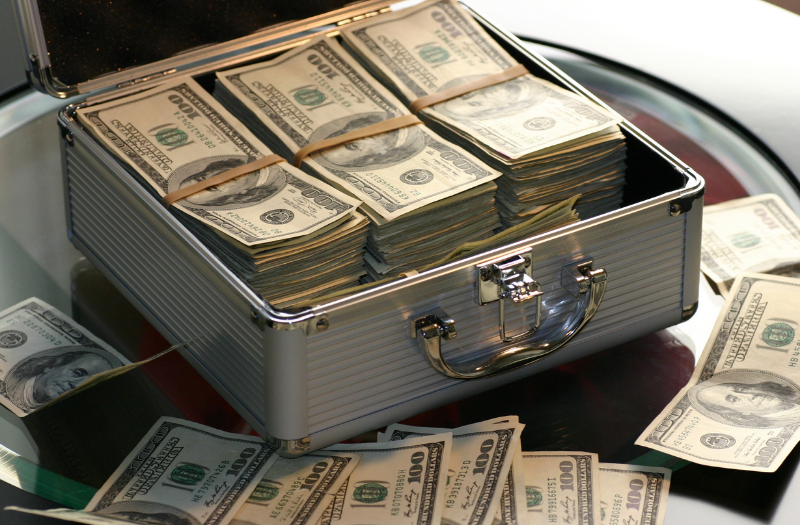
Money
No brainer, right? Keep your money at home, in the bank, or in your wallet. Money doesn’t belong in a storage unit because it can mold and decay. If someone sees you keeping large amounts of cash in your storage unit, it also makes you a target. Even though most storage units have plenty of security, there’s no reason to test the gods on this one. Keep your money and other types of currency in the bank or a safe deposit box somewhere.
Food
Some people want to use storage units for long-term food storage. However, rodent and bug infestations can go from a concern to a major problem if they’re attracted to your unit because of what they smell inside.
If you’re buying food items designed for long-term storage, that may be fine, but you’ll need to check with facility management before you move in. As a best practice, store only food items allowed by your facility and those designed for environments like your storage unit.
Storage units offer users a ton of unique benefits. They’re flexible, affordable, and safe. For the most part, you can store anything you need inside without worry. However, this list covers most of the things you won’t want to keep in a unit. When in doubt, ask the management about whether an item is permitted. They’ll guide you in the right direction to keep your property safe and give you peace of mind. Don’t run the risk of keeping things in your storage unit that violate your lease. It’s not worth the time and the trouble it will cost you.

If you’re looking for a storage facility to store your belongings, Snell Mini Storage has got you covered. At Snell Mini Storage, we offer a wide range of unit selections. To learn more about our self-storage facility, please check out our website at https://snellministorage.com/.
